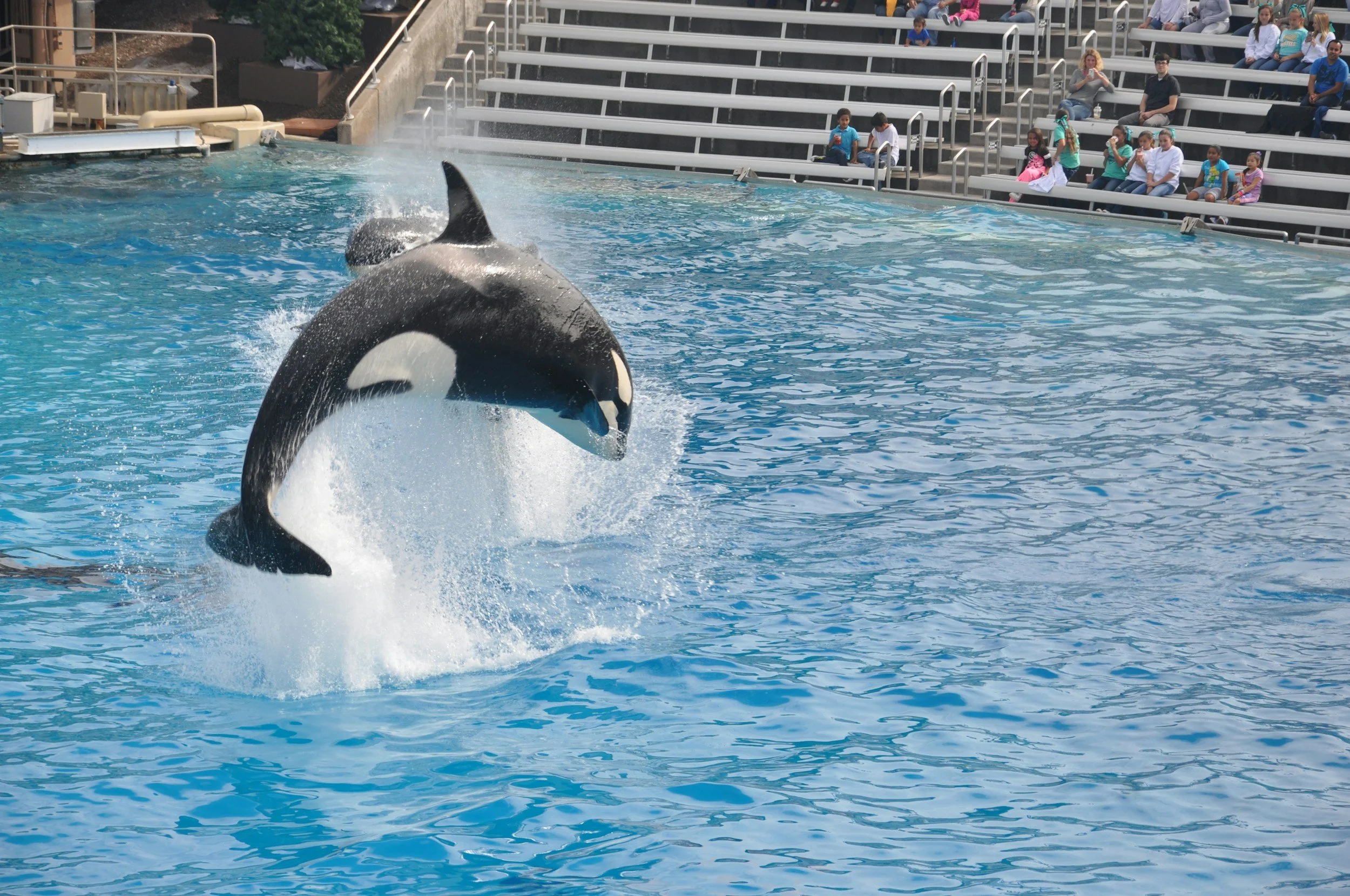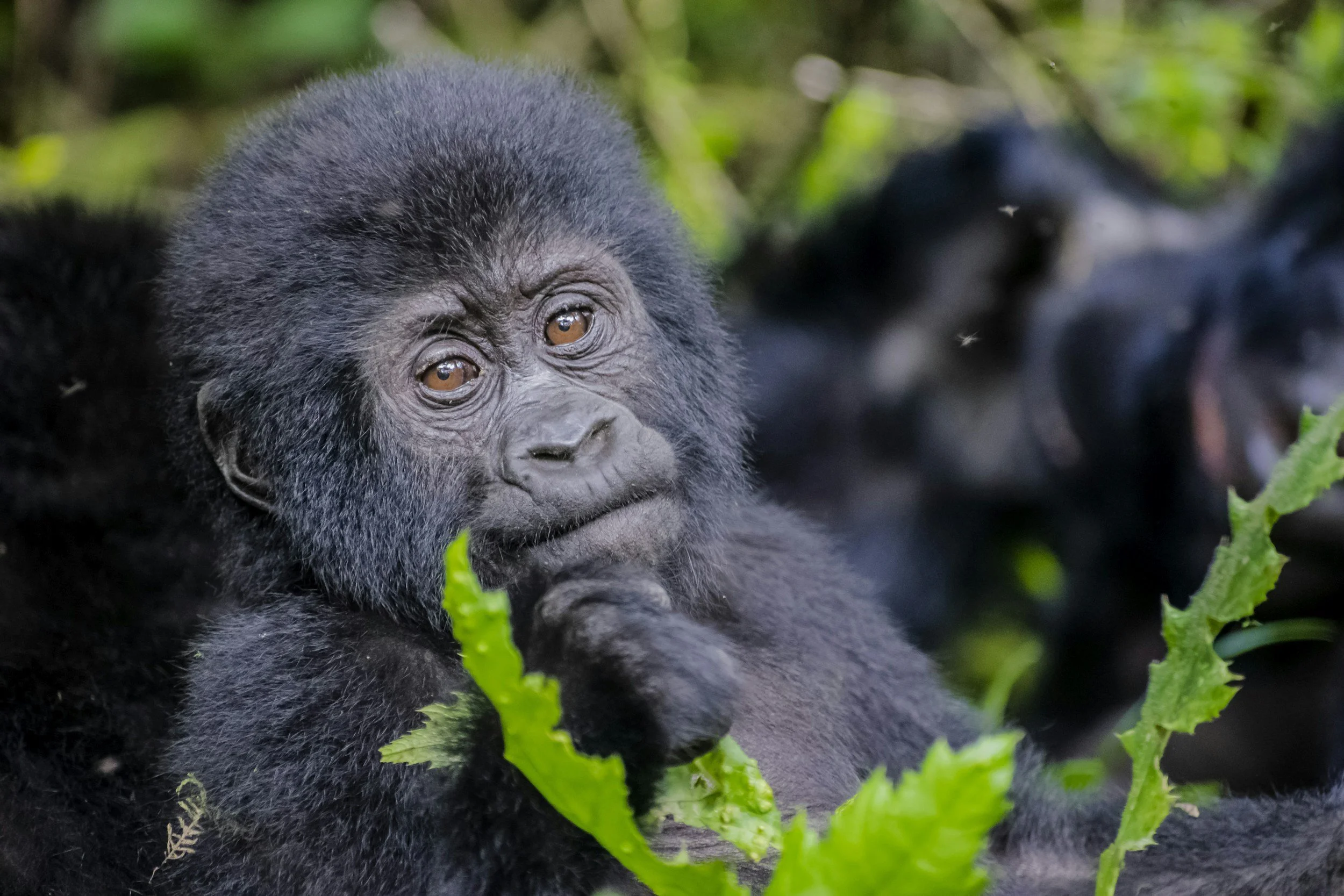Dolphins could soon have legal rights in South Korea
A proposed bill on Jeju Island aims to designate dolphins as legal persons, a move environmentalists say would better protect the endangered animals from human-caused harm.
Environmentalists on South Korea’s Jeju island are campaigning for bottlenose dolphins to receive “legal personhood” status to help protect them from threats.
An estimated 130 Indo-Pacific bottlenose dolphins inhabit the waters surrounding the island, and many bear scars from fishing gear, boats and pollution. The bodies of 16 dolphins were found along Jeju's coast in 2023 alone.
To better prevent these vulnerable cetaceans from injury and death, a coalition of the island’s campaigners and environmentalists have been working to introduce South Korea’s first-ever “eco legal personhood” system, which would grant the dolphins more rights and protections.
“The idea is that if an individual or a company threatens their livelihood, then we could act on behalf of the dolphins to sue them or to take action in another way,” Miyeon Kim, who works at local NGO Marine Animal Research and Conservation (Marc) told The Guardian.
“Different organisations that work with the dolphins have been pushing for this for two years now, but it’s very complicated and you have to get the Korean government, as well as the citizens of Jeju, to back such a move.”
The bill would amend the “Special Act on the Establishment of Jeju Special Self-Governing Province and the Development of the Jeju Free International City” to recognize these species as “eco-legal entities, granting them certain rights and legal protections to ensure long-term ecological sustainability,” according to a press release by Eco Jurisprudence Monitor.
As Jeju is a Special Self-Governing Province, the change requires only a local amendment, not a constitutional or national law revision. If passed, the bill could represent a groundbreaking shift when it comes to the country’s environmental policy, and have international implications for recognizing animals’ rights at a local level.
The proposal has gained strong support from environmental groups and 117 citizen backers, and is now under review by the National Assembly’s Public Administration and Security Committee.
“The endangered Indo-Pacific bottlenose dolphin, which has lived harmoniously with the haenyeo (female sea divers) in Jeju waters, is an important species that requires protection,” said Governor of Jeju Oh Young-hoon. “With supporters, the Jeju government will do its best to pass a revision to the Special Act on the Establishment of Jeju Special Self-Governing Province and the Development of the Free International City to designate Korea’s first eco-legal person.”
A key strategy being used by Marc is to encourage people who live on the island to connect with the dolphins, Kim said. The group has produced a booklet with each dolphin’s name against a picture of their dorsal fin.
Credit: Marc
“It’s important for us to be able to identify individual dolphins to be able to record scientific facts but it’s also important for the islanders,” Kim told The Guardian. “People have to understand and really relate to endangered species in order for these kind of things [establishing legal personhood] to work.”
The International Union for Conservation of Nature (IUCN) lists the conservation status of Indo-Pacific bottlenose dolphins as near threatened, with pods that live near to coastal island habitats vulnerable to entanglement in fishing gear and other human influenced threats.
Discarded fishing gear, tourism-related boats, and pollution from the island’s many fish farms, are among the key threats specifically facing the dolphins living around Jeju island.
Take action: Choosing a plant-based lifestyle is one of the most impactful choices you can make for animals, the environment, and your own well-being. Take Species Unite’s 30-Day Plant-Powered Challenge and be a part of a movement that's changing the world for the better.
We Have A Favor To Ask…
Species Unite amplifies well-researched solutions to some of the most abusive animal industries operating today.
At this crucial moment, with worldwide momentum for change building, it’s vital we share these animal-free solutions with the world - and we need your help.
We’re a nonprofit, and so to keep sharing these solutions, we’re relying on you - with your support, we can continue our essential work in growing a powerful community of animal advocates this year.





A judge has issued Pennsylvania’s first habeas corpus order for a nonhuman animal, advancing NhRP’s fight to move five African elephants from the Pittsburgh Zoo to a sanctuary.